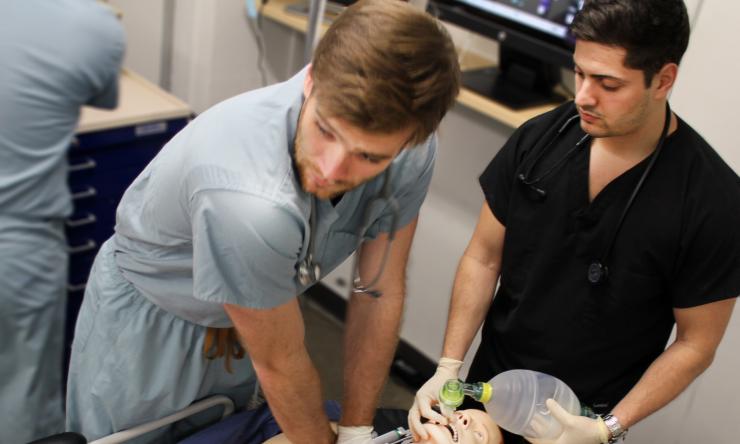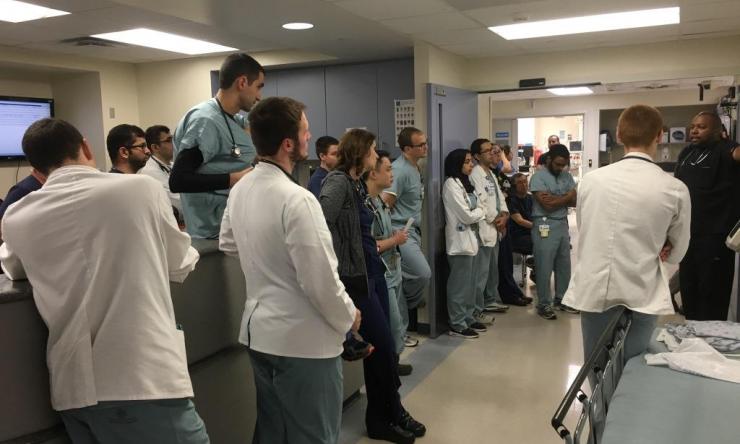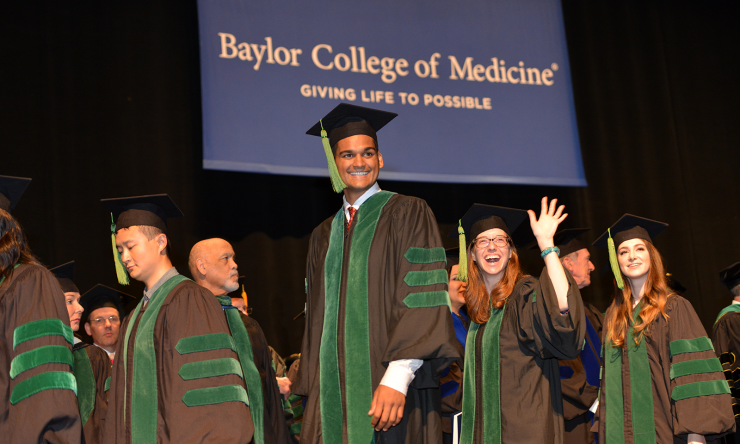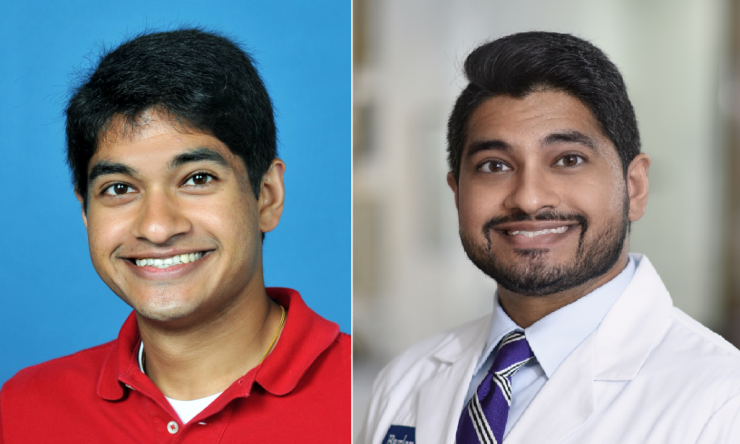You bring the passion, effort and commitment. We'll provide the courses, structure, opportunities, and support. Read on to discover how our curriculum will help you realize your career goals.
Foundational Sciences Curriculum
During your first 18 months at Baylor you will master basic science concepts while also learning how to research medical problems and function on a medical team. You likely can't wait to start seeing patients. Within the first few weeks you will start learning and putting into practice the skills you need to interact with patients.
Clinical Curriculum
Our location in the Texas Medical Center, the world's largest medical complex, provides exceptional diversity of clinical settings and patient populations. You will have opportunities to care for patients with conditions rarely seen in other medical centers. Through interacting with patients from diverse cultural backgrounds, you will gain a deep understanding of how culture influences health practices and beliefs.
Mentorship
From the moment of your acceptance through graduation and beyond, our faculty and your fellow students will serve as mentors and guides to help you succeed.
Simulation
Our students benefit from the use of a variety of simulation approaches to learn and hone diagnostic and treatment skills.
Interprofessional Education
Interprofessional learning opportunities will prepare you to function effectively as part of the healthcare team.
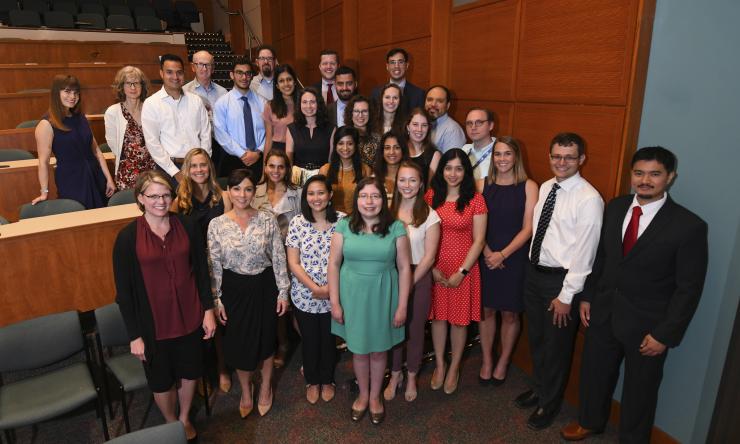
Pathways and Dual Degrees
Pathways and dual degree opportunities allow you to explore your interests and customize your education to match your career goals.
Interested in Research?
Complete a project with one of Baylor's renowned scientists. With over a century of leadership in biomedical sciences, the College's collaborative research initiatives bring scientists across disciplines and specialties to discover fundamental insights into human health and disease and to apply their discoveries to develop new diagnostic tools and treatments. Find research that matches your interests.
Interested in Serving the Underserved?
Through the AAMC’s Global Health Learning Opportunities, our students have access to approximately 1,400 rotations in 30 countries. Students also have opportunities for rotations through the Baylor International Pediatric AIDS Initiative. There are also abundant opportunities for students to help those in need right here in Houston. Explore the many ways to serve locally, nationally and globally as part of the Baylor family.
Requirements for the Degree Doctor of Medicine
View information about graduation requirements and core competency graduation goals.
Schedule
Current students can view the curriculum schedule and additional content on the Baylor Intranet (login required).
Learn from the Best
Baylor's 1,800 full-time faculty includes leaders in many fields, which means our students are exposed to cutting-edge clinical care in a variety of specialties. As one of the nation's leading research institutions, our faculty are pursuing tomorrow's medicine through a wide range of scientific endeavors—all of which represent exceptional learning opportunities.
Compact Between Teachers, Learners and Educational Staff
Learners pursuing a professional career at Baylor College of Medicine assume responsibility to develop in-depth knowledge, acquire and apply special skills, and demonstrate professionalism. Teachers guide and educate learners, and model appropriate attitudes, interpersonal skills and professional behaviors. Core educational staff support both learners and teachers.
Student Success Services
We are committed to helping you successfully navigate through your education and into your career of choice. Our holistic approach to wellness is designed to support you at every stage to achieve academic excellence, mental and physical wellness, career planning and engagement in activities that match your interests.
Growing Up Baylor
Dr. Arindam Sarkar, assistant professor of family and community medicine at Baylor College of Medicine, shared how training and working at Baylor has impacted his life and career as part of Baylor's Momentum blog's series on Growing Up Baylor.
Dr. Christner: How Medical Education Research Enhances Curriculum
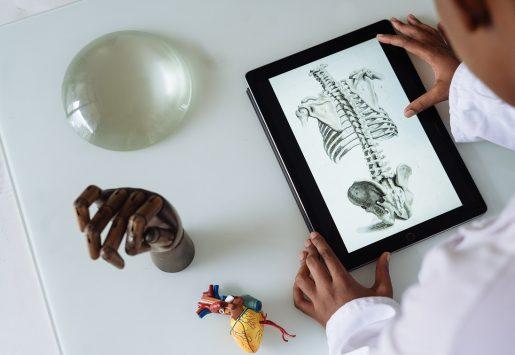
In a post on the College's Momentum blog, Jennifer Christner, M.D., Dean of the School of Medicine, explains how the same research approaches physicians and scientists use to improve patient care are used at Baylor to enhance student education.
"The curriculum is designed so that you build the efficiency you need to be ready when you get to more demanding parts of the program."








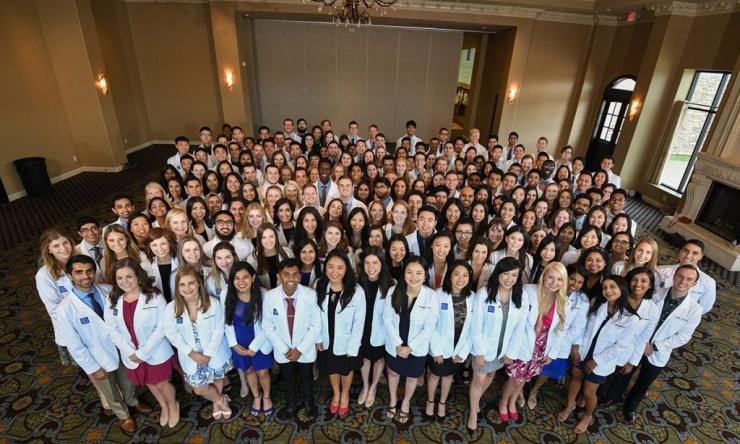
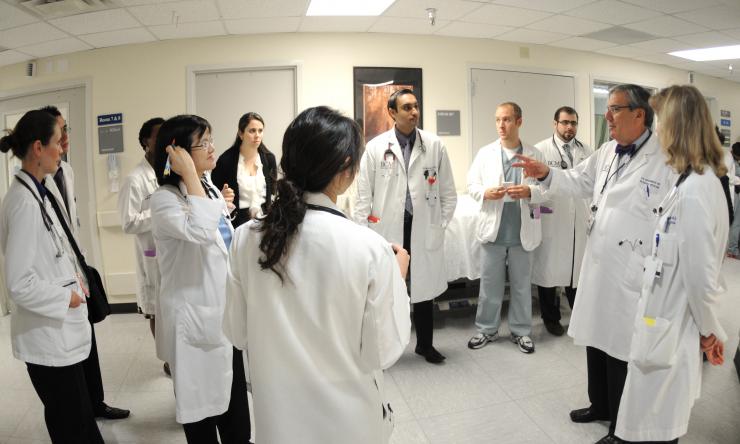

 Credit
Credit